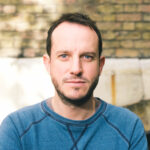Thanks to changemakers and activists, many organizations are beginning to expand their ethical lens beyond technical risk assessments of processes or ‘products-as-shipped’. Attention is expanding across time horizons, both backward—for example, to understand inequities in supply chains or training data—and forward—for example, to anticipate future harms that products or processes could cause or exacerbate.
Ethnography helps us understand the changing connections between people, processes, and objects over time, as they evolve from complex histories into possible futures. How might we deploy this ‘temporal expertise’ in practice? How can we enact our ethical responsibility to the past and future?
Collaborating in this workshop-style session, we’ll explore concrete applications of ‘temporal concepts’ that promise to make our work more ethical and more effective. We will examine:
- How an understanding of the past should influence scopes of work and project planning
- How we can use reflexivity and iteration to continually re-examine our initial objectives and assumptions
- How we can consider the future when engaging research participants in the present
- How we can develop scenarios, strategic implications, and recommendations that tie our work to ethical futures
Facilitator
 Dr. Oliver Pattenden is an anthropologist who defines cultural, innovation, sustainability and ethical opportunities for companies, charities and governments by decoding human experiences, values and behaviors. He holds a PhD in anthropology, specializing in phenomenology (experience), futures/temporality, ethics and sustainability. Through various professional commitments, Pattenden enables organizations to conceptualize their relationships with the future differently while helping them understand how to respond to a world in flux.
Dr. Oliver Pattenden is an anthropologist who defines cultural, innovation, sustainability and ethical opportunities for companies, charities and governments by decoding human experiences, values and behaviors. He holds a PhD in anthropology, specializing in phenomenology (experience), futures/temporality, ethics and sustainability. Through various professional commitments, Pattenden enables organizations to conceptualize their relationships with the future differently while helping them understand how to respond to a world in flux.
